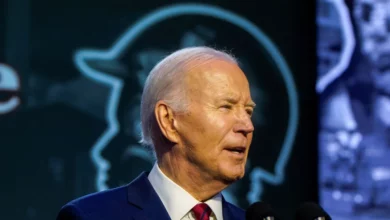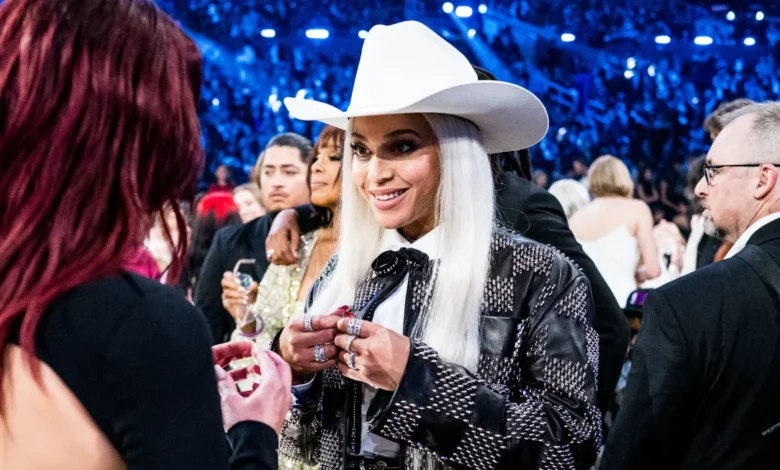
When one of the biggest artists in the world decides to shift genres (though Beyoncé’s work has always alluded to her Southern roots), it’s bound to grind a few gears. This is the same Beyoncé who has been R&B royalty for decades, who enraged critics with her unapologetically Black Super Bowl halftime show in 2016, whose 2023 Renaissance World Tour was a traveling showcase of glamor, pride and diversity of all kinds. She’s an unusual fit for the slowly evolving White, conservative world of country.
Or is she?
After all, no one loves a diva like country music. Dolly Parton, Reba McEntire and Carrie Underwood are just the beginning: Since women broke into the country scene in the ’50s, they’ve been taking us to heaven with their bouffant hair, blinding us with rhinestones and spangles and singing songs that celebrate the power and complexity of womanhood.
What is a diva?
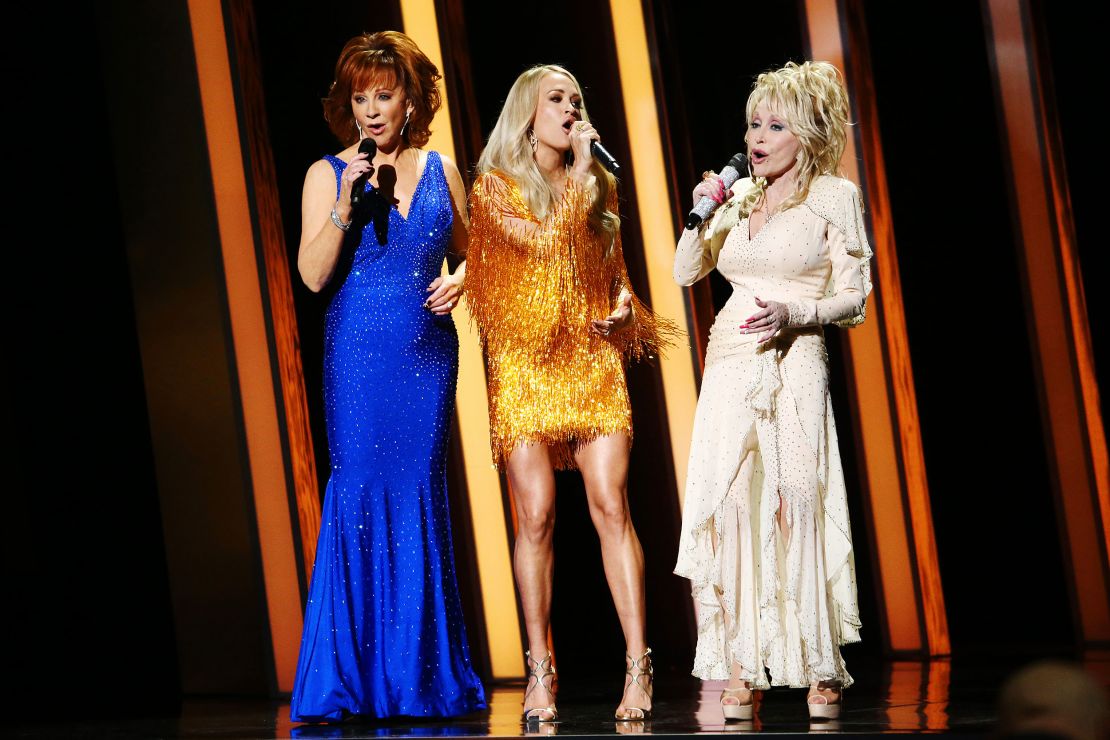
What makes a diva different than any other performer? Of course there’s a look, epitomized in the confident, authentic glamor of Dolly Parton, Tina Turner and Mariah Carey. “Diva” was originally an opera term for female singers whose talent and fame made them nearly divine in the eyes of their admirers. The expectation of a big powerful voice has carried through the times in Aretha Franklin, Whitney Houston and Carrie Underwood. (Show-stopping talent in general is a given.) A diva is timeless, often used to describe women with long, storied careers, such as Cher, Celine Dion, Reba McEntire and Gloria Estefan.
There are other definitions that complicate the term.
“Being a diva connotes a particular kind of womanly arrogance,” Christina Newland wrote for Vice in 2018. “Tellingly, much like the word ‘slut’, it has no equally powerful corresponding masculine term.”
Speaking specifically of Black divas, Cornelius Washington of the Bay Area Times wrote: “They warble about love, triumph, dating, dancing, trauma and transcendence, usually over the neck of some man in particular or men in general.”
Now we’re getting somewhere. Along with the look and the voice, divas are just a little too full of dangerous things; of talent, of ideas, of themselves.
That may not sound like country music, but consider this: In a genre historically monopolized by White men and conservative notions, what kind of woman dares to make it to the top?
The anatomy of a country music diva
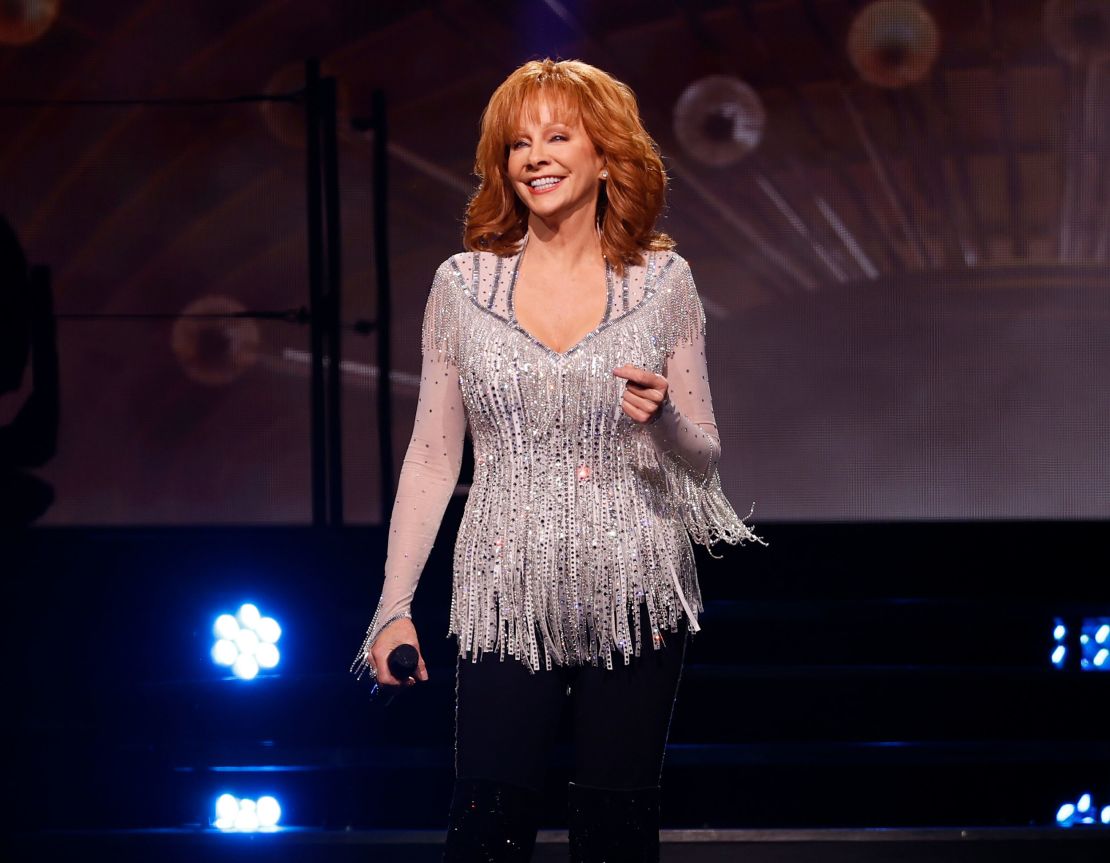
Kitty Wells, one of the first big female acts in country, may not be considered a diva, but she laid some important groundwork for divas to come. Her 1952 hit “It Wasn’t God Who Made Honky Tonk Angels” was a direct response to “The Wild Side of Life,” by Hank Thompson. The latter bemoaned good girls gone wrong, those honky tonk angels that prefer dive bars to marriage.
Wells’ recording, however, had something different to say:
It wasn’t God who made honky tonk angels
As you said in the words of your song
Too many times married men think they’re still single
And that’s caused many a good girl to go wrong
That was quite a statement in the 1950s, but it worked out famously for Wells. The single eventually outsold Thompson’s and made Wells the first woman to score a #1 song on the Billboard country charts.
Challenging a man in such a way — even surpassing him in success — that’s diva behavior.
When Beyoncé released her iconoclastic 2016 album “Lemonade,” people were shocked by the raw drama of the track “Sorry.” The scathing and specific lyrics about infidelity were widely thought to refer to her husband Jay-Z, which shone a new light on a partnership between two stratospherically successful artists.
He only want me when I’m not there
He better call Becky with the good hair
When it comes to calling out and throwing down, though, you can’t get more poetic than country queen Loretta Lynn’s 1968 hit, “Fist City.”
You’ve been making your brags around town that you’ve been loving my man
But the man I love, when he picks up trash he puts it in a garbage can
And that’s what you look like to me and what I see is a pity
You better close your face and stay out of my way if you don’t wanna go to Fist City
In more recent decades, Carrie Underwood, Miranda Lambert and other country divas have carried on the proud tradition of being women you definitely wouldn’t want to cross in a bar fight. Underwood’s “Before He Cheats” may be her most famous revenge song, but it’s not her only one: “Four Black Cadillacs,” “Church Bells” and “Blown Away” all describe the fates of men behaving badly and, well, a trip to Fist City sounds good in comparison.
The ladies of country have never been docile, and they certainly don’t apologize for themselves or their bodies or the space they take up. “It takes a lot of money to look this cheap,” Dolly Parton famously said, owning completely her glamorous, over-the-top appearance. It may be difficult to sing along with the lilting wordiness of “Fancy,” one of Reba McEntire’s best pieces of Southern Gothic storytelling, but everyone knows the climactic line:
You know I might have been born just plain white trash, but Fancy was my name.
The Beyoncé of it all
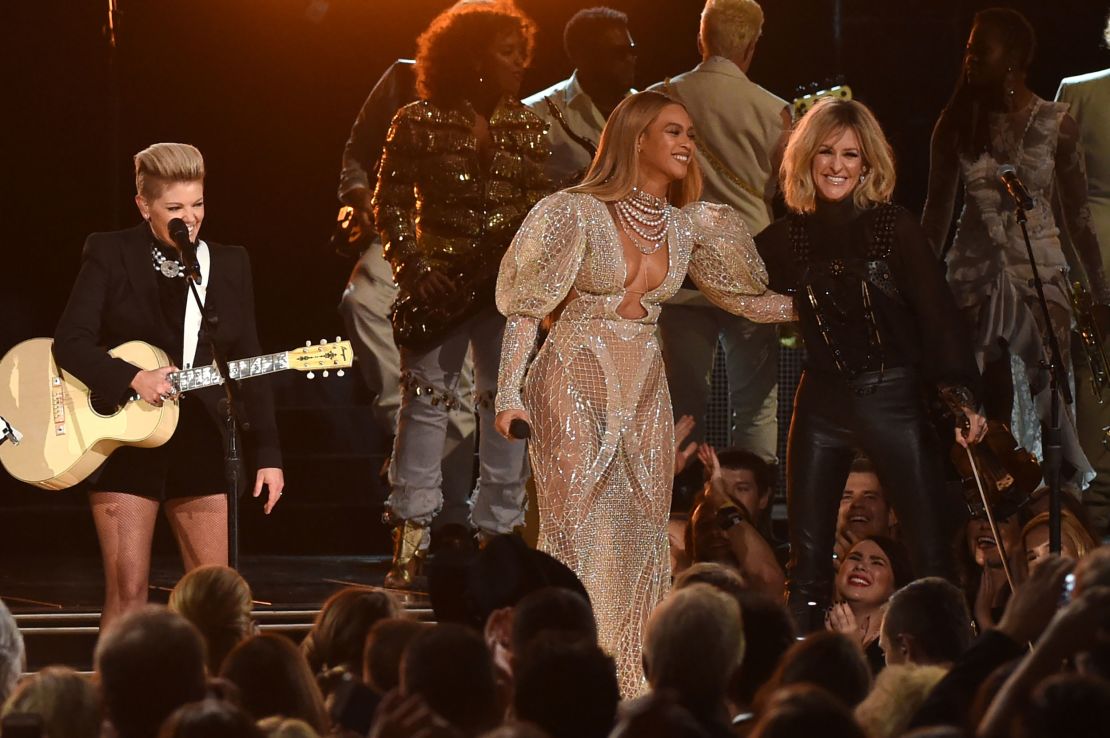
Such bold, bright, talented, unapologetic women make good company for Beyoncé, one of the top-selling recording artists in history with a cultural footprint too massive to describe. Beyoncé has also hit the country charts during a resurgence of “glam country,” where fashion and femininity and good music meet — an ideal stomping ground for divas present and future.
But a diva’s work isn’t complete until it makes someone angry.
“They’ve got to make their mark, like a dog at a dog walk park, you know every dog has to mark every tree, so that’s what’s going on here,” former “Dukes of Hazzard” star John Schneider said during a widely-panned OAN interview in which he used Beyoncé as an example to claim “leftists” are ruining country music.
Aside from the fact country music has always been full of “leftists,” Beyoncé is far from the first Black woman to break into country. Linda Martell led a trailblazing career as the first Black woman to play at the Grand Ole Opry in 1970, but ultimately left the Nashville scene because of discrimination and exploitation. Tina Turner, a diva among divas, released a Grammy-nominated country album “Tina Turns the Country On!” in 1974. Newcomers like Tanner Adell embrace a country aesthetic that’s part girly-pop glam and part down-and-dirty realness.
“Spin me like a spur, make my snakeskin rattle / Sassed up, round ‘em like cattle / Lookin’ like Beyoncé with a lasso,” she sings on her 2023 single “Buckle Bunny.”
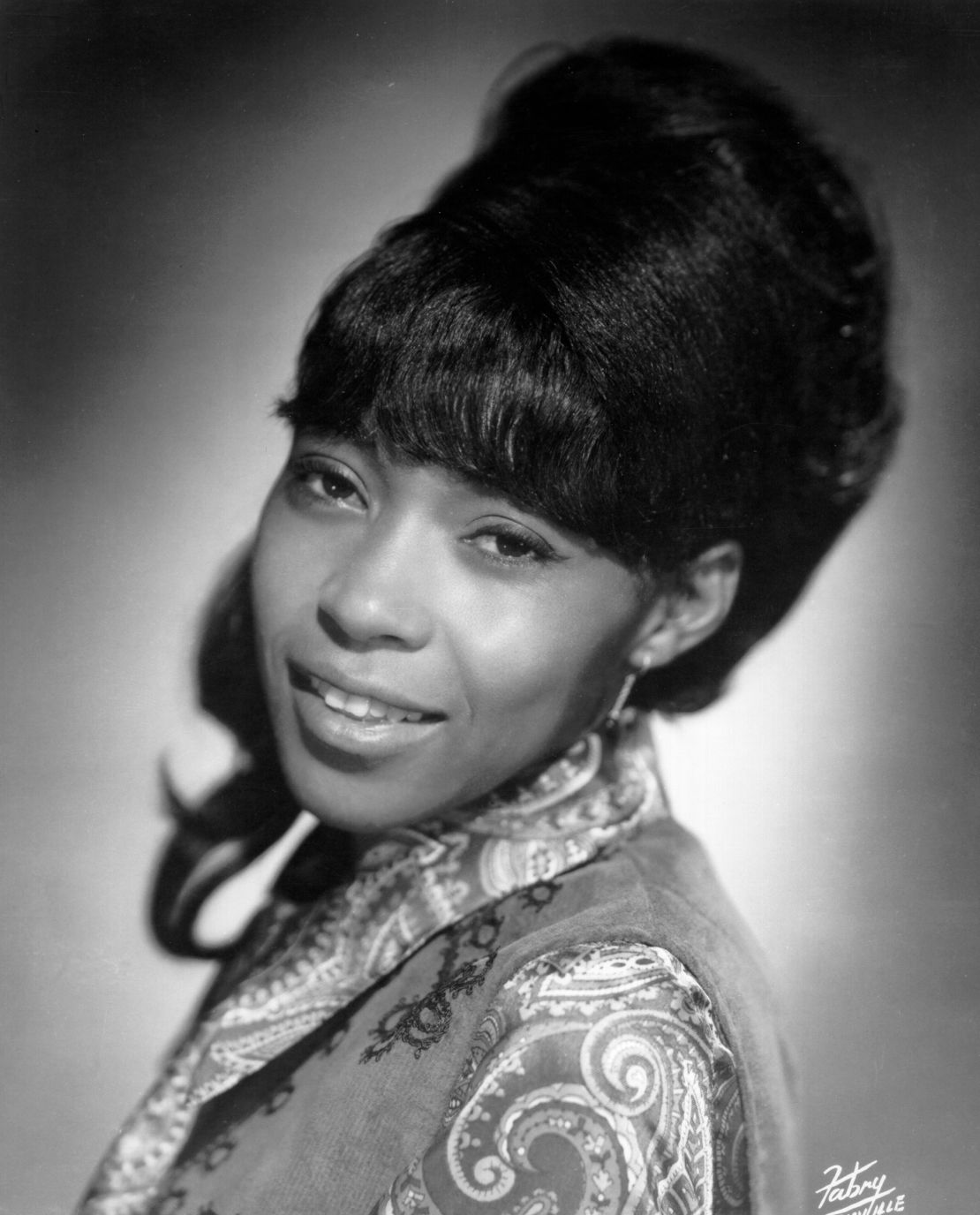
As usual, the power of the diva speaks for itself. For every critic arguing that Beyoncé’s new music isn’t “country” enough, there’s a Black country music lover or artist saying how excited they are for more visibility in the genre they love. For every person complaining about crossovers, like the handful of country artists who were angered by Beyoncé’s 2016 CMA performance with the Chicks, there’s another established country star ready to sing her praises. (Sometimes, that last part is literal. There is a very long list of country artists who have covered Beyoncé’s music through the years.)
If nothing else, divas know divas, and country music divas are ready to welcome Beyoncé into the fold. Rumors of possible country collabs are already swirling. In 2022, Dolly Parton told Trevor Noah in an interview that she would love for Beyoncé to cover “Jolene” and “take my little songs and make them powerhouses.”
However long Beyoncé stays in the country world, she can certainly count herself one of the girls.



